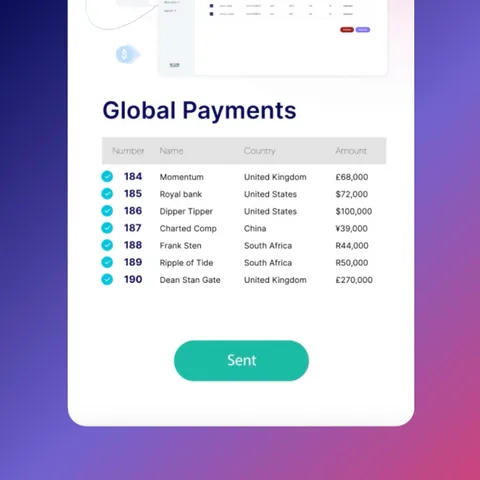Fixing FX for Online Marketplaces
Online marketplaces are indispensable to today's digital economy, but amid the seamless exchange of goods and services lies a complex challenge: foreign exchange (FX) management. Max Lehmann, Senior Vice President and Head of Partnerships at Nium, explores why empowering global marketplaces with greater control over the payment experience holds the key to unlocking the sector's next wave of growth.
Global online marketplaces are powering transactions between buyers and sellers around the world. Yet amid the seamless exchange of goods and services, for marketplaces, navigating the intricacies of FX management throws up a barrage of obstacles, sapping their ability to unlock their true growth potential. It’s now predicted that 33% of global e-commerce will be cross-border by 2028. If online marketplaces are to reap the rewards of this globalizing trend, FX management is a knot of problems best unravelled fast.
Complexity costs
So, what exactly is the problem with FX management? The answer is simple - complexity.
Handling transactions in multiple currencies is loaded with it. Currency conversion, understanding and managing exchange rate fluctuations, and addressing the ins and outs of cross-border taxation and tariffs all add layers of complexity to the process. And when it comes to smaller international markets, marketplaces often find themselves resorting to manual processes to distribute funds, introducing more inefficiencies.
The upshot of incomplete FX management for platforms is stark: revenue volatility driven by currency price swings, margins drained by unfavourable exchange rates, competitiveness blunted by pricing issues, and overheads bloated by operational inefficiency. Sadly, the end-users of marketplace platforms don’t fare much better either.
Consider this: on top of all their already-full to-do lists, sellers operating in multiple currencies must grapple with FX fluctuations and transfer fees, all of which are intricately tied to a marketplace platform's backend payment system. Add to this getting hit by unreasonable FX markups or withdrawal fees, and the taxes levied on foreign currency exchanges (1% to a staggering 35%), and the tangled mess of FX management starts carving chunks out of their profit margins. In this way, FX-related issues sour the user experience – creating frustration, chipping away at trust and, ultimately, hurting retention and loyalty.
In short, complexity costs. Revenues, profits, and growth potential all take a hit off the back of inefficient and incomplete FX management. It is little surprise, then, that marketplaces are driven to action, but the solutions on offer too often fall short of the challenge.
Current solutions don’t cut it
Many global marketplaces have turned to Payment Services Providers (PSPs) or dedicated local payout companies to handle FX management and facilitate global payouts. While these solutions may seem straightforward at first, they come with their fair share of drawbacks.
For one, engaging with PSPs or local payout companies strips marketplaces of control over critical elements like onboarding procedures, FX rates, and payout costs. Sellers are typically redirected to a local payout provider, severing the marketplace's influence over crucial steps in the journey. The user experience often suffers, leading to dissatisfaction and undermining the marketplace's reputation.
On top of this, adopting multiple payout providers adds significant overhead for marketplaces. To cover their global operations and cater to a diverse seller base, marketplaces find themselves caught up in a web of integrations and partnerships with various payout providers. Managing these relationships alone requires substantial resources, redirecting valuable time and attention away from the true objective of growth.
Rather than making things simpler, the fragmented nature of current solutions makes things harder for marketplaces, as they struggle to maintain consistency and efficiency across their global operations. Instead of streamlining FX management and payout processes, marketplaces wind up burdened with disjointed systems and workflows, hampering scalability and hobbling growth.
Underlying it all is the failure to tackle the complexity of FX management effectively. That’s why current approaches introduce more problems than they solve, leaving marketplaces trapped in a cycle of inefficiency and frustration. It’s clear that a more comprehensive and integrated approach to FX is needed, one that places simplicity and control at its core.
Control unlocks growth
At Nium, we’re driven to make the complex simple, and we believe that empowering marketplaces with greater control over the payment experience is the key to unlocking the sector’s next wave of global growth.
With our white-labelled infrastructure, platforms can seamlessly integrate FX management within their existing ecosystem, exerting full control over the customer experience on a global scale. By eliminating the need for sellers to sign up separately, marketplaces retain autonomy over FX, payout speed, and user data, without the risk of sharing their seller user base with competitors. No more passing sellers off to multiple third-party providers, no more relinquishing control—just a seamless, cohesive, global experience that keeps everyone happy.
We’re convinced that equipping platforms with the ability to conduct transactions in multiple currencies opens a world of possibilities. Free of the hassle long associated with cross-border transactions and buoyed by streamlined processes and reduced transaction costs, platforms can tap into new markets with ease. With Nium’s coverage spanning over 220 markets and 100 currencies, 100 of which in real-time, that means extended reach and diversified revenue streams, so marketplace platforms can focus on what they do best: connecting buyers and sellers and shaping the future of digital commerce.
Curious to find out more? Discover how Nium can accelerate your marketplace growth on its real-time global payments infrastructure and get started today.
This article was published inThe Paypers ‘Fintech for Marketplaces and Platforms Report 2024’. Download the full report here.

Author
-

Max Lehmann
Senior Vice President and Head of Partnerships at Nium
Related Articles


.png@webp)
.png@webp)



.png@webp)
.png)









